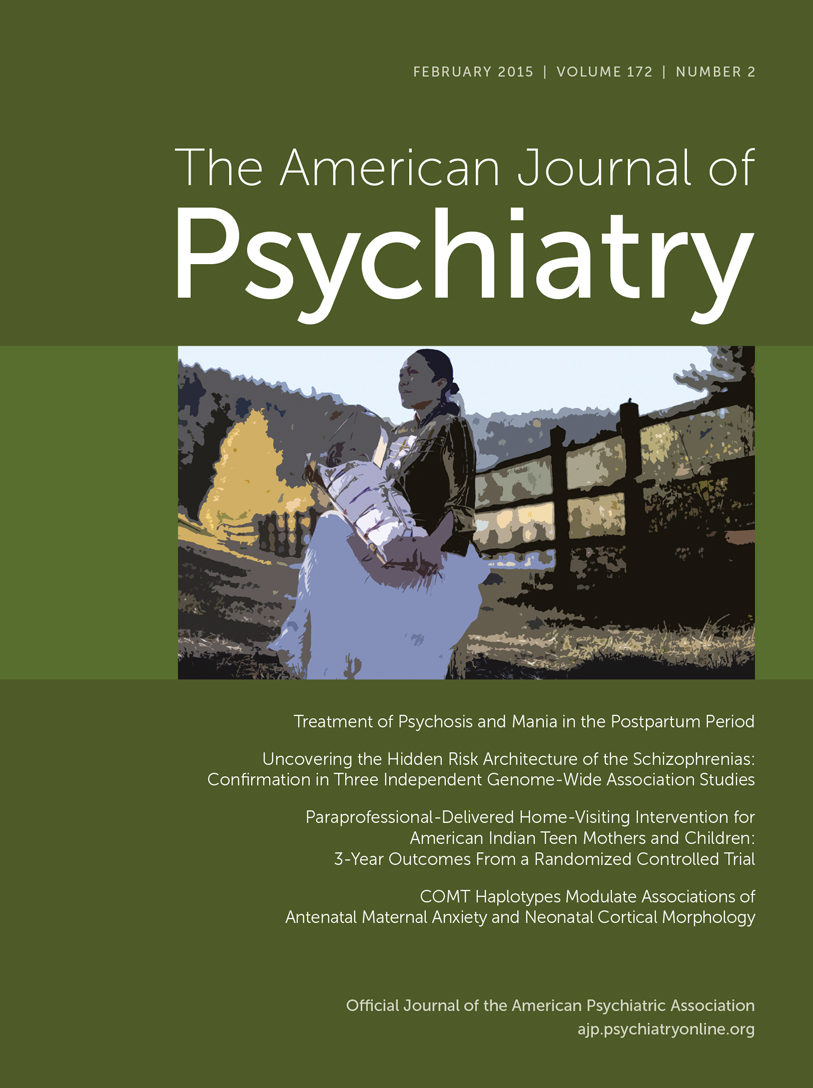COMT Haplotypes Modulate Associations of Antenatal Maternal Anxiety and Neonatal Cortical Morphology
Abstract
Objective:
Exposure to antenatal maternal anxiety and complex genetic variations may shape fetal brain development. In particular, the catechol-O-methyltransferase (COMT) gene, located on chromosome 22q11.2, regulates catecholamine signaling in the prefrontal cortex and is implicated in anxiety, pain, and stress responsivity. This study examined whether individual single-nucleotide polymorphisms (SNPs) of the COMT gene and their haplotypes moderate the association between antenatal maternal anxiety and in utero cortical development.
Method:
A total of 146 neonates were genotyped and underwent MRI shortly after birth. Neonatal cortical morphology was characterized using cortical thickness. Antenatal maternal anxiety was assessed using the State-Trait Anxiety Inventory at week 26 of pregnancy.
Results:
Individual COMT SNPs (val158met, rs737865, and rs165599) modulated the association between antenatal maternal anxiety and the prefrontal and parietal cortical thickness in neonates. Based on haplotype trend regression analysis, findings also showed that among rs737865-val158met-rs165599 haplotypes, the A-val-G (AGG) haplotype probabilities modulated positive associations of antenatal maternal anxiety with cortical thickness in the right ventrolateral prefrontal cortex and the right superior parietal cortex and precuneus. In contrast, the G-met-A (GAA) haplotype probabilities modulated negative associations of antenatal maternal anxiety with cortical thickness in bilateral precentral gyrus and the dorsolateral prefrontal cortex.
Conclusions:
These results suggest that the association between maternal anxiety and in utero neurodevelopment is modified through complex genetic variation in COMT. Such genetic moderation may explain, in part, the variation in phenotypic outcomes in offspring associated with maternal emotional well-being.



